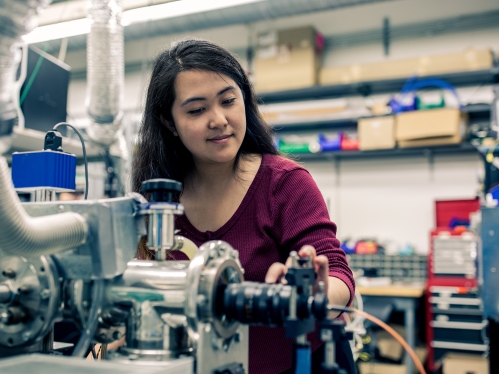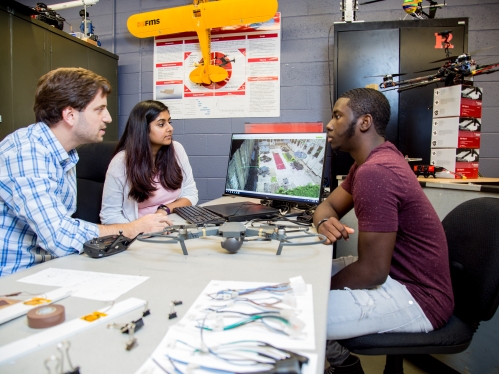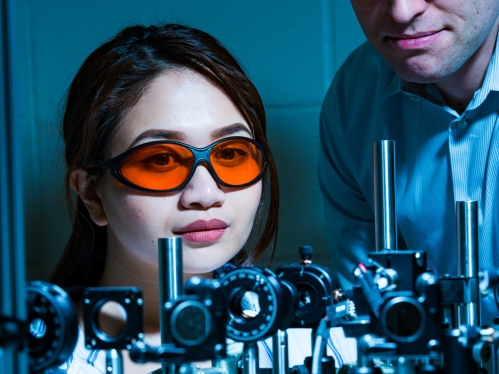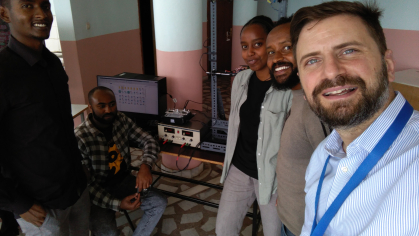Mechanical Engineering Undergraduate Program
What is Mechanical Engineering
Virtually every object around us has passed through the hands of a mechanical engineer, making this field of engineering one of the most broad-based, extending into a wide range of industries, including robotics, energy generation, distribution, advanced manufacturing, automotive aerospace, naval, materials development, and more.
Program Overview
The undergraduate program in mechanical engineering focuses on classroom instruction paired with learning in multi-disciplinary project-teams. The program includes mathematical, scientific, and technical knowledge coupled with opportunities for research, preparing students for a wide variety of careers.
Students may also elect to pursue a concentration in aerospace, energy or packaging leading to additional certification.
Aerospace Concentration An aerospace concentration, consisting of three senior courses in the aerospace field, is available to students interested in the development of new aircraft and space vehicles. This concentration is for the student interested in aerospace engineering without pursuing an aerospace degree.
Energy Systems Concentration The energy systems concentration, consisting of three major courses, includes course and lab work in understanding technologies and practices in the fields of alternative, nuclear, and traditional energy sources.
Packaging Concentration This concentration provides students a broad and multi-disciplinary foundation in the fundamentals of packaging engineering.

Coursework
The Department of Mechanical and Aerospace Engineering offers a Mechanical Engineering Curriculum leading to a BS degree in Mechanical Engineering.
All Mechanical Engineering students have a broad selection of departmental core courses, from which they can choose according to their interests and career goals.

Putting Your Degree to Work
With a degree in mechanical engineering, student will be equipped to take on real-world challenges like:
- Design and manufacture mechanical devices and machines
- Manufacture, characterize, and test prototypes
- Computationally analyze tools, engines, and machines
- Manage the integration of sensors, controllers and machinery
- Oversee production and testing and quality control
- Pursue research and development in industrial and government laboratories.






